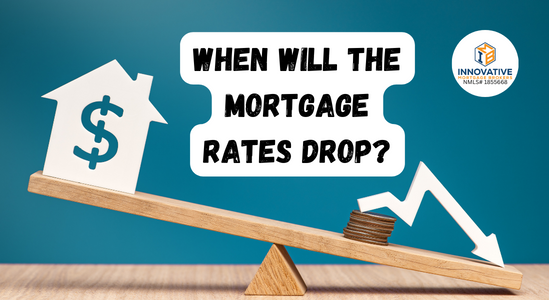When buying a home, securing a mortgage is a significant step that can impact your…
Do you Need Perfect Credit to Buy a House?
It’s a common myth that you need perfect credit to buy a house. The truth is you don’t. You can buy a home with an average or sometimes even a low credit score.
Of course, an excellent credit score makes it easier to get approved, and you should do what you can to have a high credit score but don’t let it stop you from buying a house.
What is the Ideal Credit Score to Buy a House?
Ideally, you’d have a 680+ credit score when buying a house, but you may still qualify if you have a lower score.
The better credit you have, the better terms a lender can offer. Most lenders base your interest rate on your credit score; the higher it is, the better the rates and terms.
Minimum Credit Scores by Loan Type
Each loan type has minimum credit score requirements and other underwriting guidelines. The minimum credit scores may vary by lender, but on average, here’s what they require:
- Conventional loans – Minimum 620 credit score
- FHA loans – Minimum 580 credit score
- VA loans – Minimum 620 credit score
- USDA loans – Minimum 640 credit score
Again, these are averages; some lenders may require higher scores or charge more if you have lower scores.
What Happens if You Have Bad Credit?
If you don’t have perfect credit, you may still qualify for a mortgage; it depends on your other qualifying factors.
The easiest way to get approved with a lower credit score is to have compensating factors or unique underwriting factors that make up for the lower credit score, such as:
- Low debt-to-income ratio – Your DTI is the next most important factor after your credit score. It shows how much of your income you have committed to your monthly obligations. The ideal DTI is 43% or lower, but with a low credit score, try keeping the DTI as low as possible.
- Large down payment – The more you invest in your home, the more risk you take off the lender. A higher down payment means a lower loan-to-value ratio. Each loan program requires different down payments, but if you put down more, you increase your chances of approval.
- Assets – Assets can be an important factor in helping borrowers to get a mortgage, especially if they have a lower credit score. Assets such as savings accounts, stocks, and retirement accounts can all be viewed as positive factors by lenders because they show that the borrower has a buffer of financial resources to draw on in case of emergency. These assets can also demonstrate that the borrower has a higher level of financial discipline, which can help to offset a lower credit score.
Every lender has different requirements for credit scores and compensating factors, but the better picture you paint regarding your risk level, the easier it is to get approved.
What Makes up a Credit Score?
Now that you know what credit score you need to qualify for a mortgage, you might wonder what makes up a credit score.
A credit score is a number used to measure your financial responsibility. The higher the score, the lower your risk of default. Credit scores range from 300 – 850 and are made up of the following:
- Payment history – How well you pay your bills affects your credit score the most. It makes up 35% of your credit score. If you make your payments on time and/or don’t miss payments for over 30 days, it will help your credit score increase.
- Credit utilization – Your credit utilization measures the amount of outstanding credit compared to your credit line. The ideal limit is 30%, or $300, for every $1,000 credit line. If you have a higher credit utilization than 30%, it can decrease your credit score.
- Length of credit history – The longer you have credit, the easier it is to have a high credi score. Try keeping your credit accounts open as long as possible and not applying for new credit will help keep this part of your credit score high.
- Credit mix – Your credit score will benefit if you have a good mix of credit between revolving debt (credit cards) and installment debt (personal, car, and other loans). Showing lenders you can handle various credit types ensures you are a good risk.
- New credit – Each time you open a new credit line or apply for new credit, it hurts your credit score slightly. Apply for credit sparingly, and when you shop for the best rates, be sure to do so quickly.
Can you Increase your Credit Score?
Fortunately, you can increase your credit score. It changes daily, and it is easy to raise it with a few simple steps.
If your credit score isn’t as high as you hoped, try these tricks:
- Correct any late payments – Bring all your late payments current and continue making your payments on time. An on-time payment history helps your credit score increase the fastest. Another option is to dispute any errors on your credit report. Mistakes can happen, such as the lender reporting a late payment even though you made payments on time. By disputing any errors on your credit report, you can have them corrected or removed, potentially increasing your credit score.
- Keep your credit utilization low – Pay your credit card balances as low as possible, or off entirely, if possible. Try keeping your credit utilization rate below 30%.Lenders view high credit utilization as an indicator of financial risk, as it suggests that you may be overextended or have difficulty repaying your debts.
- Don’t close old accounts – Keep old credit accounts open to increase your credit score. The older your credit age is, the better your score will be. Older credit accounts are advantageous for a few reasons. They show that you have longstanding relationships with lenders, which can make you appear more creditworthy. Additionally, they increase the average age of your credit accounts, which can also have a positive impact on your credit score. Closing old credit accounts can also increase your credit utilization, which is another factor that can lower your credit score.
- Ask for credit line increases – If you need to lower your credit utilization rate, ask your credit card companies for a credit line increase, but don’t spend it. The higher limit will automatically decrease your credit utilization rate.
- Being added as an authorized user – Usually when you are added as an authorized user, the entire credit account history of the cardholder is added to your credit report. This means that if the primary cardholder has a long history of making on-time payments and has a low credit utilization rate, it could positively impact your credit score. However, it’s important to note that this also works the other way around – if the primary cardholder misses payments or has a high credit utilization rate, it could also negatively impact your credit score.
Final Thoughts
Your credit score matters when you buy a house, but it doesn’t have to be perfect. Of course, the better your credit, the easier it is to qualify, but perfect credit isn’t necessary.
Government-backed loans, like FHA and USDA loans, have more relaxed guidelines, making it easier to secure financing, but even conventional loans may be an option.
The key is to show that you are a good risk and have the compensating factors to compensate for a low credit score or the ability to fix your score before applying for a mortgage.
One of the best things about working with us at Innovative Mortgage Brokers is that we have access to a wide range of loan options. Unlike going to a single lender or bank, we can help you compare multiple lenders and loan products to help you find the best mortgage for your unique situation. We help you evaluate different loan terms, interest rates, and fees to find the most competitive option for your needs.
Another benefit of working with us is that we are an advocate for you throughout the loan process. At Innovative Mortgage Brokers, we guide you through the application process, help you gather the necessary documents, and offer advice and support as needed. We also help you understand the terms of the loan, including any potential risks or pitfalls.
If you are looking for a mortgage in Pennsylvania or Florida, we would love the opportunity to show you what we can do. Our team has a proven track record of helping clients find the loan options for their needs. Whether you’re a first-time homebuyer or a seasoned real estate investor, at Innovative Mortgage Brokers we can help guide you through the mortgage process and find the loan that’s right for you.





